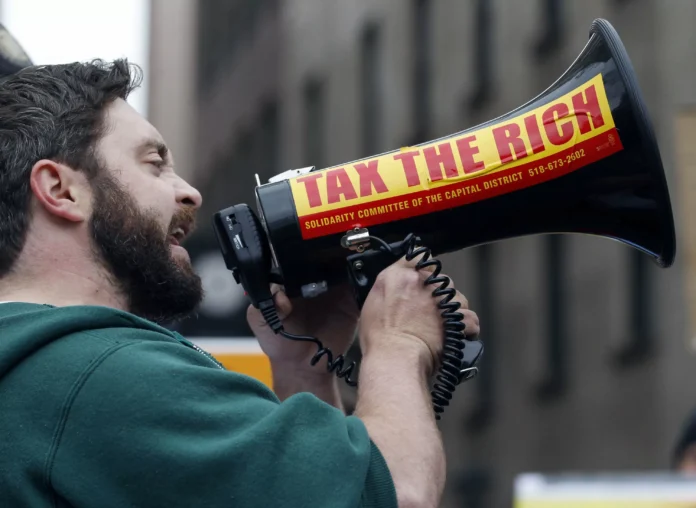The world’s richest 1% have seen a staggering increase in their fortunes over the past decade, according to a recent report by Oxfam. The Nairobi-based international nongovernmental organization revealed that the wealthiest individuals in the world have collectively gained over $42 trillion in wealth, while the rest of the population continues to struggle with poverty and inequality.
This alarming statistic highlights the growing wealth gap between the ultra-rich and the rest of the world. While the top 1% have seen their fortunes skyrocket, the majority of the global population has not experienced the same level of economic growth. This is a clear indication that our current economic system is failing to address the needs of the majority and is instead benefiting a select few.
The report also revealed that the top 1% now own more than twice as much wealth as 6.9 billion people combined. This is a shocking and unacceptable reality that cannot be ignored. It is a stark reminder that our world is still plagued by extreme poverty and inequality, despite the progress that has been made in other areas.
The reasons behind this massive increase in wealth for the top 1% are complex and multifaceted. One of the main factors is the rise of technology and globalization, which has created new opportunities for the wealthy to accumulate wealth at an unprecedented rate. Additionally, tax policies and loopholes have allowed the rich to avoid paying their fair share, further exacerbating the wealth gap.
But this is not just a problem for the developing world. Even in developed countries, the gap between the rich and the poor is widening. In the United States, for example, the top 1% owns 40% of the country’s wealth, while the bottom 90% only owns 23%. This is a concerning trend that needs to be addressed before it becomes even more extreme.
The consequences of this growing wealth gap are far-reaching and have a negative impact on society as a whole. It perpetuates a cycle of poverty and limits opportunities for those who are not born into wealth. It also leads to political and social instability, as the wealthy have more influence and power in decision-making processes.
But it’s not all doom and gloom. Oxfam’s report also highlights the potential for change and the steps that can be taken to address this issue. One of the key solutions is to implement fairer tax policies that ensure the wealthy pay their fair share. This would not only generate much-needed revenue for social programs and services but also help to reduce the wealth gap.
Another important step is to invest in education and healthcare for all. By providing equal access to quality education and healthcare, we can break the cycle of poverty and give everyone an equal chance to succeed. This would also lead to a more skilled and productive workforce, which would benefit the economy as a whole.
Furthermore, governments and corporations must take responsibility for their actions and prioritize the well-being of their citizens and employees over profits. This means paying fair wages, providing safe working conditions, and implementing sustainable business practices. It also means holding the wealthy accountable for their actions and ensuring they contribute to the betterment of society.
As individuals, we also have a role to play in addressing this issue. We can support organizations like Oxfam that are working towards a more equitable world. We can also use our voices and our purchasing power to demand change from governments and corporations. By coming together and advocating for a fairer and more just society, we can make a difference.
In conclusion, Oxfam’s report is a wake-up call for all of us. It highlights the urgent need for action to address the growing wealth gap and the consequences it has on our world. We cannot continue to ignore this issue and allow the rich to get richer while the rest of the world suffers. It’s time for governments, corporations, and individuals to come together and work towards a more equitable and prosperous world for all. Let’s make it our collective goal to ensure that everyone has the opportunity to thrive and succeed, regardless of their economic status.


